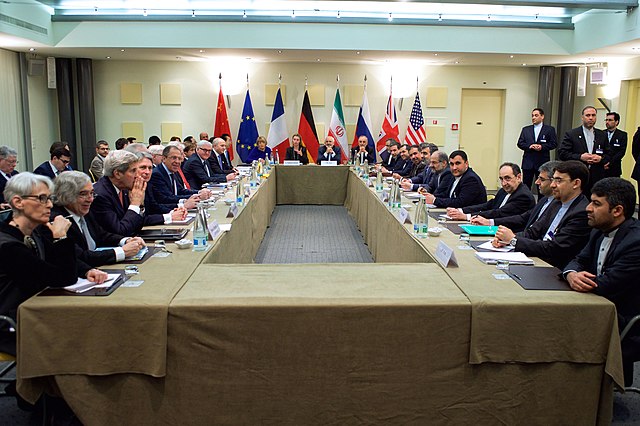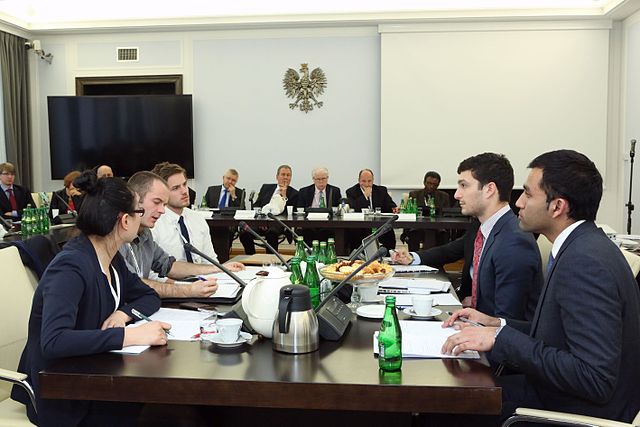Appeasement, in an international context, is a diplomatic negotiation policy of making political, material, or territorial concessions to an aggressive power to avoid conflict. The term is most often applied to the foreign policy of the British governments of Prime Ministers Ramsay MacDonald, Stanley Baldwin and Neville Chamberlain towards Nazi Germany and Fascist Italy between 1935 and 1939. Under British pressure, appeasement of Nazism and Fascism also played a role in French foreign policy of the period but was always much less popular there than in the United Kingdom.
Adolf Hitler greets British Prime Minister Neville Chamberlain at the beginning of the Bad Godesberg meeting on 24 September 1938 in which Hitler demanded annexation of Czech border areas without delay, leading to the Godesberg Memorandum.
Emperor Haile Selassie of Ethiopia, c. 1942
UK Prime Minister Stanley Baldwin
Seyss-Inquart and Hitler in Vienna, March 1938
Negotiation is a dialogue between two or more parties to resolve points of difference, gain an advantage for an individual or collective, or craft outcomes to satisfy various interests. The parties aspire to agree on matters of mutual interest. The agreement can be beneficial for all or some of the parties involved. The negotiators should establish their own needs and wants while also seeking to understand the wants and needs of others involved to increase their chances of closing deals, avoiding conflicts, forming relationships with other parties, or maximizing mutual gains. Distributive negotiations, or compromises, are conducted by putting forward a position and making concessions to achieve an agreement. The degree to which the negotiating parties trust each other to implement the negotiated solution is a major factor in determining the success of a negotiation.

The ministers of foreign affairs of the United States, the United Kingdom, Russia, Germany, France, China, the European Union and Iran negotiating in Lausanne for a Comprehensive agreement on the Iranian nuclear programme (30 March 2015)
Signing the Treaty of Trianon on 4 June 1920. Albert Apponyi standing in the middle.
Students from the University of Tromsø and the University of Toronto during the 5th International Negotiation Tournament – Warsaw Negotiation Round in the Polish Senate (2014)







